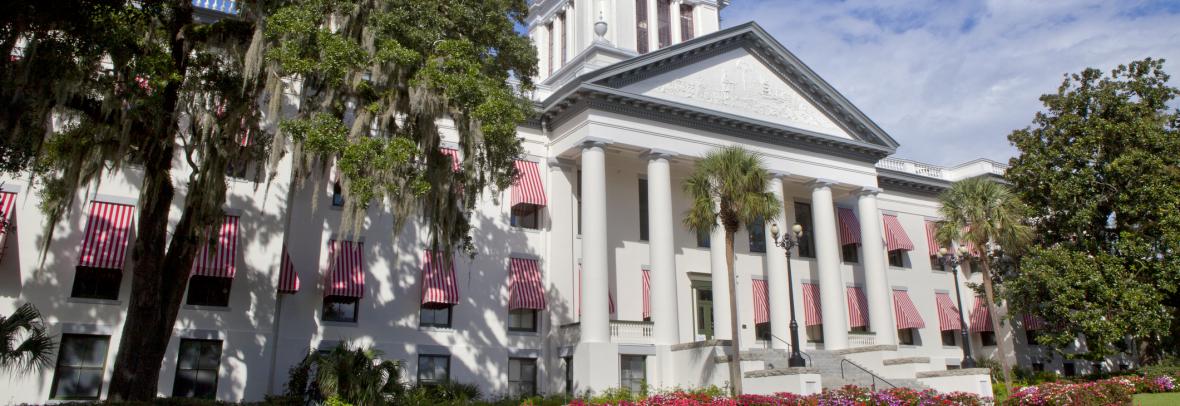
Affordable housing advocates want the Florida Legislature to fully fund affordable housing this year, while insurers hope something is done about soaring costs.
ORLANDO, Fla. – As Florida lawmakers get ready for another session that convenes Tuesday, affordable housing advocates are worried about keeping dedicated funding, and the home insurance industry is pondering what might be done about soaring costs.
Jaimie Ross, president and CEO of Florida Housing Coalition, says the No. 1 concern for her organization is always the Sadowski Housing Trust Fund, which allocates money to affordable housing and other programs.
“What we are looking for this year is to see that the Legislature keeps its promise and that not a penny is swept,” she said.
The Sadowski Fund sets aside a portion of taxes generated by home sales to build affordable homes in the state. Since its founding in 1992, legislators have raided the fund for pet projects and other state needs.
Last year, Florida passed a bill that permanently took half of the fund for other concerns but promised that the other half would be used strictly for housing. If these provisions hold, the fund is set to receive $209.2 million this year, the largest amount appropriated in more than 10 years.
“Even losing 50%, housing is getting more money than it has been getting,” Ross said.
Ross gave credit to Gov. Ron DeSantis for requesting the full amount in his proposed budget, which she said the governor has done every year he’s been in office. Now, she says she’s waiting to see if lawmakers agree.
Also on Ross’ radar is SB 788, the Hometown Hero program, which grants loans to first responders, educators and other government and medical employees to help with down payments on new homes. Ross said she wants to make sure the legislators don’t use Sadowski funds to pay for it.
Ross said her organization is also hopeful for HB 495/SB 1150, which gives municipalities the right to grant tax exemptions for affordable housing. And she’s interested in HB 511/SB 648, prohibiting agencies from using an eviction during the pandemic against new tenant applicants.
“We are very concerned that people who get evicted could end up homeless,” she said.
Both bills could face tough sledding in the Republican-controlled House and Senate.
Michael Carlson, president and CEO of the insurance lobbying organization Personal Insurance Federation of Florida, said he predicts “a relatively quiet legislative session” on issues of property insurance. It’s not that he doesn’t see issues to tackle, mainly rising home insurance costs.
“Rates are increasing by double digits in many parts of the state,” he said. “If we keep going, people are not going to be able to afford homes because they can’t afford the insurance.”
Carlson points to legislation from last year that was aimed at attorneys’ fees for litigating insurance claims, a move that was intended to reduce the number of what Carlson calls “predatory” roofing claims. Part of that legislation was struck down as unconstitutional. Carlson believes there may be some attempts to retool it. However, the fight to get the legislation passed last year pit two of the state’s biggest lobbies, insurance and trial attorneys, at odds.
“It took a lot out of people to get that passed,” he said.
Carlson also is concerned about the growing size of the state-run Citizens Property Insurance, which insures houses at lower rates for people who can’t find home insurance in the mainstream market. The growing number of customers for Citizens puts all Florida taxpayers at risk of having to cover the company if it suffers a catastrophic loss. As of its most recent report, Citizens has 715,516 policies, representing more than $211 billion in property.
Sen. Jeff Brandes. R-St. Petersburg, has put forward SB 186, which allows surplus line insurers to be part of “take-out programs” and other measures designed to get customers off of Citizens.
Carlson suggested that Citizens is charging too little in premiums.
“It’s really too competitive,” Carlson said of the state-run company. “We need to bring it more in line with other insurers.”
Finally, HB 325/SB 512 has caught the eye of Denis Hanks, executive director for Florida Vacation Rental Management Alliance.
The bills, submitted by Rep. Jason Fischer, R-Jacksonville, and Sen. Danny Burgess, R-Zephyrhills, respectively, would collect sales tax from sites such as Airbnb and VRBO and make people renting their houses subject to local ordinances in place for vacation rentals. Hanks says a few of the provisions would be hard on those who are maybe only renting out one or two properties and not going through the big platforms.
“I think the thing we’re looking for is standardization across the board,” he said. “Our goal is just to make it more palatable to those small-time operators.”
© 2022 Orlando Sentinel. Distributed by Tribune Content Agency, LLC.
Go to Source
Author: kerrys



